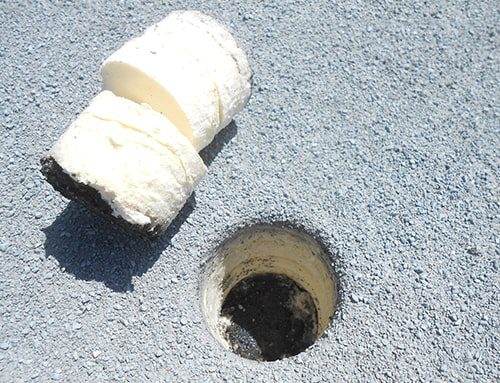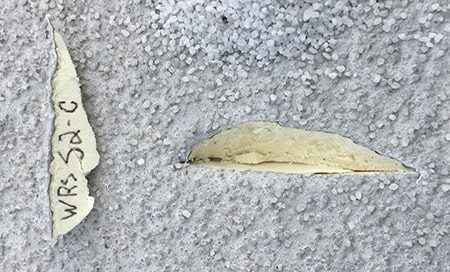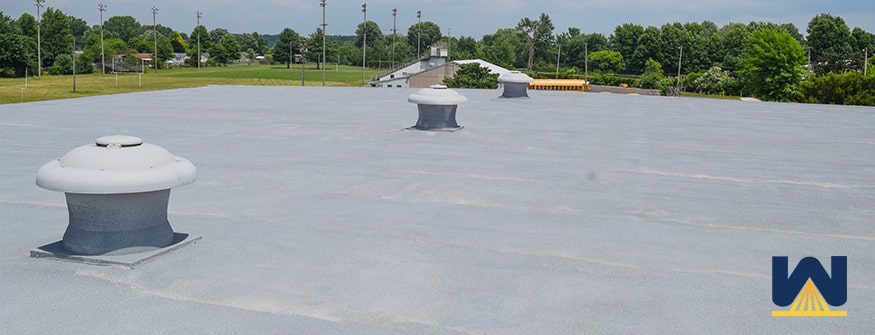So you’re a building owner, and you think, “I got my new spray foam roof and a 15-year warranty, why do I need to sign up for routine maintenance?”
In similar fashion, let’s say you buy a new car and it comes with a 10-year warranty.
Congratulations, now no matter what happens in the next 10 years, you won’t be liable for any damages on your new car.
Right?
What would happen if you never replaced the oil every 5,000 miles like it says in the owner’s manual?
What would happen if you never replaced the rear fuel injectors?
First off, there’s no such thing as rear fuel injectors! That’s just a made-up part car people tell fake car people to see if they know what they’re talking about.
And secondly, you would be liable for any damages that happen to your new vehicle if you ignore the necessary maintenance that’s required for the vehicle to perform how it was meant to.
Since West Roofing Systems has been installing, servicing, and granting warranties on commercial spray foam roofs for over 40 years, we see this exact same scenario happen way too often.
In this article, we’ll explain to you:
- What happens after your spray foam roof is installed?
- Who grants the warranty?
- Who provides the labor and materials at different years throughout your warranty?
- What’s the first step that happens once damage is recognized?
- Other warranty advice from a spray foam roofer with 30+ years of experience
Let’s get started…
Common questions asked about spray foam roofs and warranties
What happens post-installation with regards to my warranty?
The first thing that will happen once your spray foam roof is installed is for the manufacturer to bring out a 3rd party inspector.
The inspector will perform a visual inspection to make sure your roof looks like it’s supposed to. Then they will begin taking core samples.

The inspector will have parameters, say every 10,000 sq. ft. where they must take so many core samples, as well as slits of the coating.

In that core, they can tell the thickness of the foam and the millage of coating that’s present.
If you wanted an R-value of 20, you as a building owner would certainly love to see a few core samples to see if the roofing contractor installed the correct amount of foam, whether it’s 1.5 inches, 2 inches, etc.
For warranty purposes, the inspector wants to know about the coating that’s protecting the foam.
This is important because if the building owner wants a:
- 10-year warranty, 20 mils of coating needs to be present
- 15-year warranty, 25 mils of coating needs to be present
- 20-year warranty, 30 mils of coating needs to be present
They also make sure granule coverage is correct.
To aid in such precise measurements, an inspector will use an optical comparator.
An optical comparator is used to magnify and inspect the amount of coating and granules that are present in a slit sample.
If the slit sample is light on coating, they’ll mark that area, then they’ll go out 5-10 feet and take another sample, and they will keep doing this until they find the correct amount of millage.
Every manufacturer is different with the acceptable ranges of coating.
At the end of the inspection, the roof is determined to be good to go to grant the warranty, or the roofing contractor may have to come back out and make the necessary adjustments.
Who grants the warranty?
The warranty can come from the manufacturer of the materials used on the job, or it can come from the roofing contractor who installed those materials.
It’s the building owner’s choice.
There are a lot of differences between a roofing warranty coming from the manufacturer or the contractor.
The most common differences include price and the timeliness of service, which we’ll get into below:
Price
In short, pricing for a materials-only warranty granted by the contractor or the manufacturer is very inexpensive or at no cost. There is no reason why the products shouldn’t perform how they were designed to.
The pricing for a full-system warranty (which includes material and labor) that’s granted by the contractor is about $4-8c per sq. ft.
The pricing for a full-system warranty granted by the manufacturer is about $8-15c per sq. ft.
Timeliness of service
If you choose the route of manufacturer warranties, product-only or full-system, a red flag is the time it may take to answer your service call.
If you have a roof leak, you’ll need to contact the manufacturer, who will notify the roofing contractor that completed the job that a damage or leak report has come in.
After getting approval from the manufacturer, that roofing contractor will go back to the job site, investigate, repair, and then turn in a report to the manufacturer.
If you had your warranty through the roofing contractor, you could eliminate the middleman by excluding the product manufacturer.
Having your warranty go through multiple companies can extend service calls from being done in 1-3 days with a roofing contractor, to sometimes multiple weeks with the added step of going through manufacturers.
This can be extremely frustrating to a building owner who has a roof leak and needs service.
Pro Tip: It’s best to get your warranty through the roofing contractor who performed the work. With everything handled by one company, every step of a warranty claim is much simpler for a building owner.
Who provides the labor and materials at different years throughout your warranty?
It doesn’t matter if your warranty is through the contractor or manufacturer, for the first few years, the roofing contractor will make any repairs.
Here’s how long a roofing contractor will make your repairs:
- On a 10-year warranty, the first 2 years
- On a 15-year warranty, the first 3 years
- On a 20-year warranty, the first 4 years
We, as a contractor, are liable for the first couple of years of that warranty. Then, after that, it’s on the warrantor.
After year 4, who does the labor? Who pays for the materials?
More than likely, the roofing contractor who performed the initial installation will perform all the repairs because they usually have great relationships with the manufacturers. But not always.
The manufacturer will provide the materials for the repair and pay the roofing contractor of their choice for the labor.
If a building owner gets a maintenance package, how would a warranty claim work?
If the repair is something minimal, a roofing contractor will fix the repair as part of a maintenance package.
Examples would be a small crack. Sometimes there are small cracks in the flashings because the movement of the flashings cracked the foam. That’s not a warranty claim.
But if there’s a lot of wet coating or wet foam that’s substantial in size, the roofing contractor will contact the manufacturer to bring their inspector out to look at it.
The inspector will perform an inspection, and determine if it’s material failure, applicator failure, or a non-covered third-party error.
What are a few examples of an applicator error?
Sometimes the product may fail because the two products that make spray foam weren’t mixed correctly. Or perhaps when the applicator was spraying, the temperature changed drastically, and they didn’t adjust the spraying gun to the appropriate heating temperature for the material.
This is why it’s important for a spray foam roofing contractor to be an expert in the three energies of spray foam roofing.
If they aren’t an expert in the three energies of spray foam, the foam will not cure correctly.
Another example of applicator error is when the contractor didn’t get the roof dry enough and they sprayed foam over a wet area. Say it rained the night before and they didn’t get it dry enough. This creates a lot of off-ratio foam.
The last example of applicator error is when the equipment wasn’t taken care of properly. One pump might not be pumping enough to keep the two materials mixing at a 1-1 ratio, which is needed for spray foam to adhere, cure, and perform how it’s meant to.
Warranty advice from a spray foam roofer with 30+ years of experience
Greg “Barney” Haas, who has 31 years of spray foam roofing experience tells everyone to read their warranties…and if you have any questions to notify the manufacturer or your contractor and they will explain the warranty in-depth to you.
The biggest shock is when a building owner thinks there’s a warranty claim, but sometimes the damage is due to non-covered, third-party scenarios, such as bird pecking and tropical storms.
If a bird pecked it, it’s not a warranty issue. It’s called mechanical damage done by others. Even though “others” was a bird. This scenario happens a lot with other contractors (usually HVAC) that damage the roof when they are performing their repairs.
If a tropical storm comes through, that’s not the contractor or manufacturer’s fault. Natural causes don’t constitute a warranty claim.
The only thing a roofing contractor or manufacturer can control is the application and the products.
Many building owners think, I have a warranty, why do I need a maintenance program as well?
Well, it’s just like your car, if you don’t put oil in it, what’s going to happen? If you don’t wash it, it’s going to rust out. The same can happen with your roof is there’s no maintenance being performed.
A building owner may think there’s a warranty claim because it’s leaking, but they never cleaned the drains out and the roof was underwater for 2 years and it blew apart. This would cause damage to any roof and those damages would not be covered by warranty.
Wrapping up spray foam roofing warranties
Hopefully today, you gained a clearer perspective on how a warranty works with a spray foam roof.
And as Barney said, if you’re not sure, make sure to ask your contractor questions!
And see their responses in writing.
Barney has been with West Roofing Systems for 31 years and counting and has dealt with hundreds of spray foam roofing warranties over his tenure.


